The first time Suman Roy used a food bank, he was curious to see what was in the bag he had been handed. “I sat down in a little courtyard nearby and started going through it,” says Roy, who immigrated to Canada in 2002 with $42 in his pocket. “One of the items was a box of dry bread pieces that I thought I’d break my teeth on. Even though I was very hungry, I threw it out. I know now that it was a stuffing mix. But then, coming from India, I had no idea.”
Today, Roy is the founder and CEO of Feed Scarborough, an organization that operates six food banks designed to offer clients choice and autonomy – things he didn’t experience as a food bank client – alongside various programs aimed at dismantling the systemic barriers to food security. “Before the pandemic, I never imagined I’d be running food banks,” he says, pointing to his career as an executive chef, food educator and fierce advocate for universal access to healthy, culturally relevant food. “I’ve always said that food banks are a Band-Aid solution that shouldn’t exist, and I still do. But in 2020 some friends and I watched food banks closing and the demand going up, and we had to do something.”
Roy found a group of like-minded people in the researchers, students and community leaders at U of T Scarborough’s Feeding City Lab, a virtual network that also launched in 2020 to study, among other things, the pandemic’s impact on local and global food insecurity. Since then, the research has expanded to broader questions around food systems and “food justice”– which focuses on eliminating disparities in food production, distribution and access. This is one of the lab’s ultimate goals: transforming the current, unjust food system into a sustainable, equitable one where food insecurity no longer exists.
“Social justice issues are strongly embedded in our research,” says Jo Sharma, the lab’s lead researcher and an associate professor in the department of historical and cultural studies and the Culinaria Research Centre. She and her colleagues, including Roy, work from the shared conviction that food should be a human right, not a commodity, and that poverty reduction must be central to any strategy to alleviate food insecurity.
The pandemic exposed and widened the cracks in already stretched food systems worldwide. U of T’s PROOF, a food policy research program, reports that, in 2021, some 5.8 million Canadians lived in households that were food insecure (defined as having inadequate access to food for economic reasons), with the highest rates in Indigenous and racialized communities. A report by Food Banks Canada shows that, between 2019 and 2022, Canada saw the largest increase in food bank use since the 2008 recession. Today’s high inflation has only exacerbated the situation; experts say food insecurity will increase in 2023 and beyond.
“Just as Suman was able to mobilize people to set up food banks during the pandemic, our lab brought people together with an urgent mission,” says Sharma. “Now, in what we might call the late pandemic, we’re working with community partners like Feed Scarborough to help build back better. We collaborate directly with people on the food frontlines, and every project comes out of conversations about their challenges and priorities.”
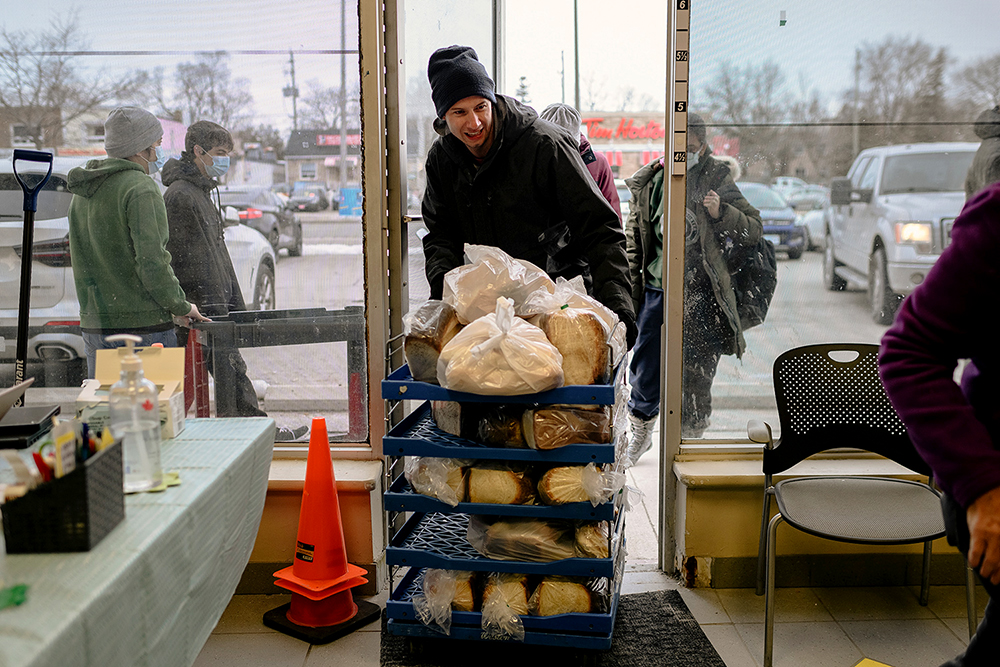
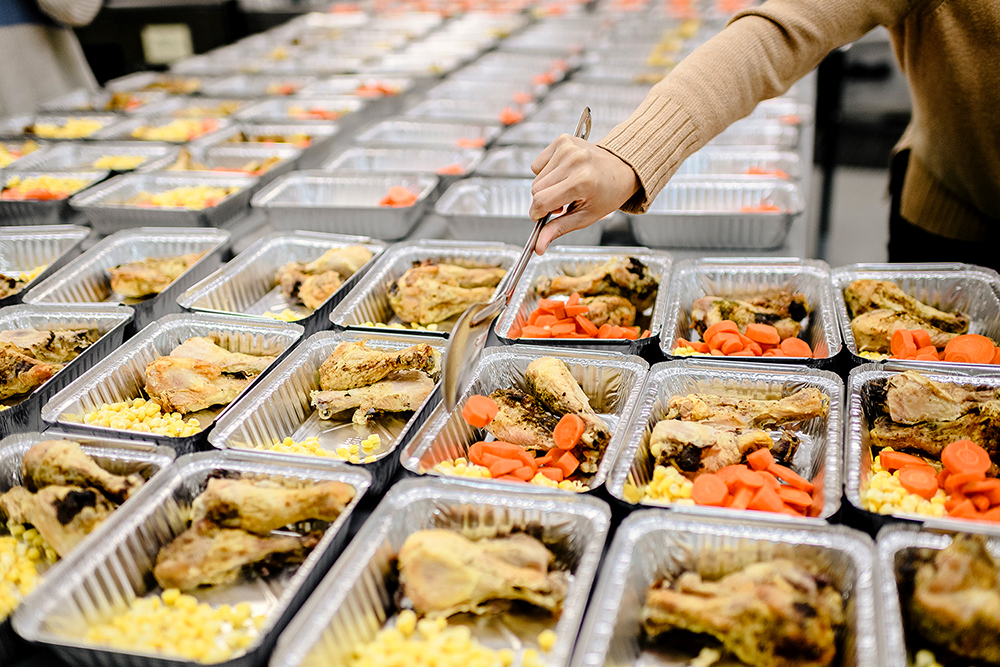
Building better food banks
For those working toward food justice, food banks are seen as a vital stopgap that should eventually become unnecessary. Until that happens, the Feeding City Lab is helping its collaborators improve food banks by incorporating food justice values and programming into their operations. At the six food banks Suman Roy runs, people never leave with food they don’t want or need. Instead, they have an experience much like going to a grocery store – choosing items in well-labelled aisles and checking out with a cashier (using prepaid cards). “Most clients come to food banks with shame and a feeling of stigma,” says Roy. “We’re trying to give them a sense of dignity.”
Researchers at the Feeding City Lab collaborated with Roy’s team to create Feed Scarborough’s website, which allows clients to order online. They also provided guidance and expertise in helping Roy’s team introduce a free service for turning startup ideas (in any industry, not just food services) into viable businesses. This is part of Feed Scarborough’s array of poverty-reduction initiatives, which range from mental health and housing support to culinary training. “U of T Scarborough researchers work alongside us to write grant proposals for these programs and develop the policy objectives driving our advocacy around long-term solutions to food insecurity,” says Roy. “I’ll know I’ve been successful the day I can shut down the food banks.”
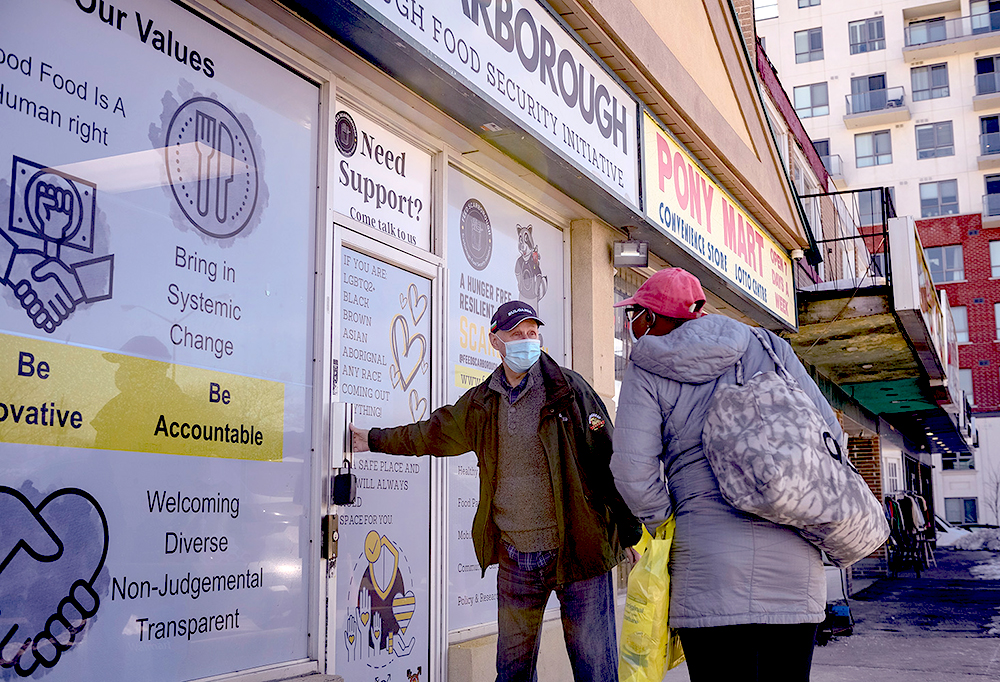
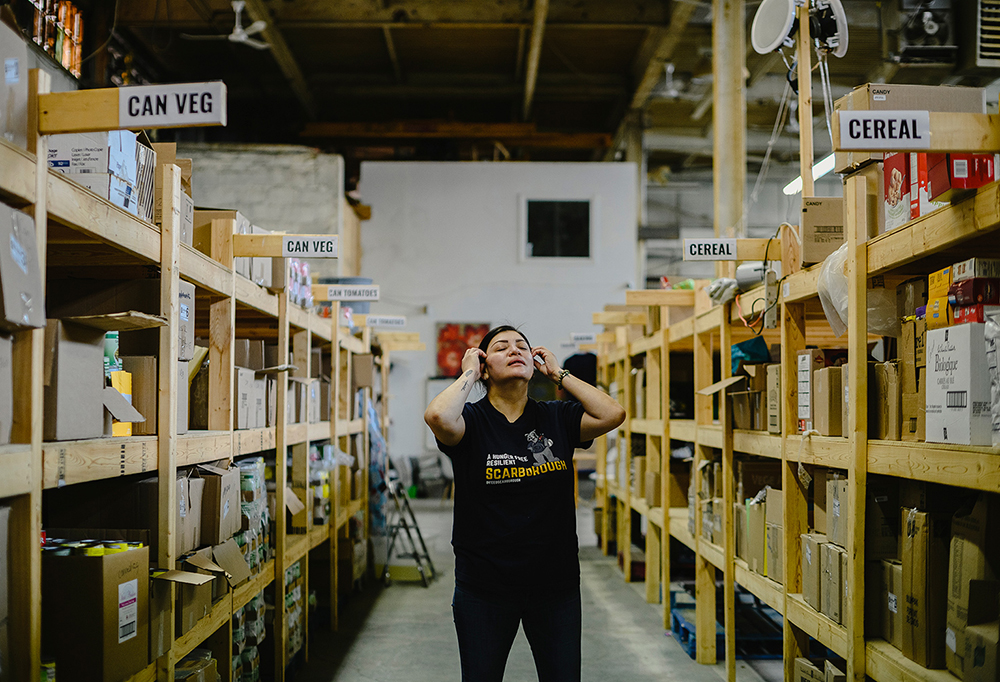
Reaching out to restaurants
Restaurants and small food enterprises are essential to the food security and livelihood of marginalized communities. More than 25 per cent of the people who work in food services are immigrants, and the whole workforce tends to be young. During the pandemic, when the industry needed government support, the Feeding City Lab helped increase the effectiveness of municipal assistance programs.
The City of Toronto asked the lab for assistance in understanding why some small restaurants weren’t applying for municipal grants. The researchers decided to concentrate on ethno-culturally diverse restaurants, in line with the lab’s emphasis on equity issues. “We matched students working in the lab with restaurants based on their familiarity with the owners’ language and cultural norms, which instantly built trust and led to good interviews,” says Noah Allison, a postdoctoral fellow at U of T Scarborough. “In the end, we increased the restaurateurs’ awareness of government funding sources, produced a comprehensive report for the city and gathered important research data.”
Transforming farmers’ markets
In many Toronto neighbourhoods, it’s not easy to get locally grown, fresh, affordable food – especially produce that is used in diverse cuisines. “An organization called Red Onion Events was bringing farmers’ markets to underserved areas and racialized communities,” says Allison, noting that the markets were a departure from the typical high-end ones found in affluent neighbourhoods. “To help the organizers get off the ground, we facilitated partnerships between the markets and local farmers and improved their digital capabilities.”
By offering options for online ordering, pick-up and delivery, the Scarborough Farmers’ Market improved local residents’ access to sustainably produced food that suits their tastes. They could buy bitter melon, for example, a fruit used in Asian cooking, and the leafy green vegetable known as “callaloo” in the Caribbean. “It’s about food sovereignty – the ability of people to choose what they eat, who produces it and how they get it,” says Allison. The research team also conducted interviews with vendors and customers, delivering insight to the market organizers on what was working, what wasn’t and how to improve.
Growing food locally
Shortly after the Centre for Immigrant and Community Services opened its first food bank during the pandemic, it enlisted the Feeding City Lab to survey clients on their needs. One key finding was that people wanted to see more of the vegetables commonly used in their cultural dishes. To supply these, the lab helped the centre secure grants to double the size of its community garden and build a greenhouse. Brian Joyce, director of community services at the centre, says the lab provided important data on the value of these projects, which helped secure the grants. “People can grow food at our facilities, and soon we’ll give them the supplies for a container garden or garden bed at home,” he says. When inflation led to a doubling of users at the food bank over the past year, the growing spaces eased the supply crunch.
“We rely on the expertise of U of T Scarborough researchers in so many areas,” says Joyce. “The university has soil experts, for example, who can tell us if our gardening ideas are viable. And we use the Feeding City network to trade ideas with organizations that are operating similar food programs here and across the world.”
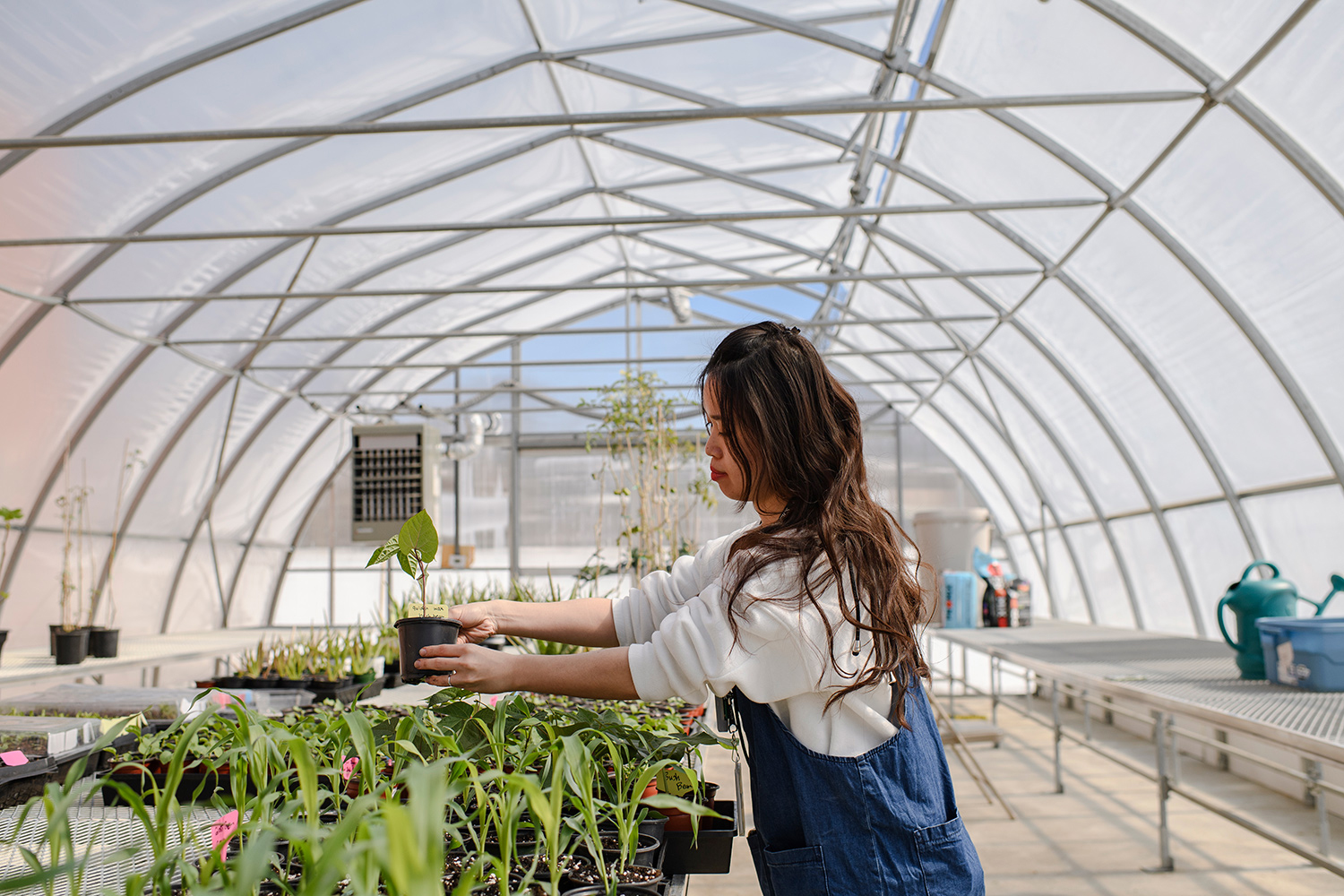
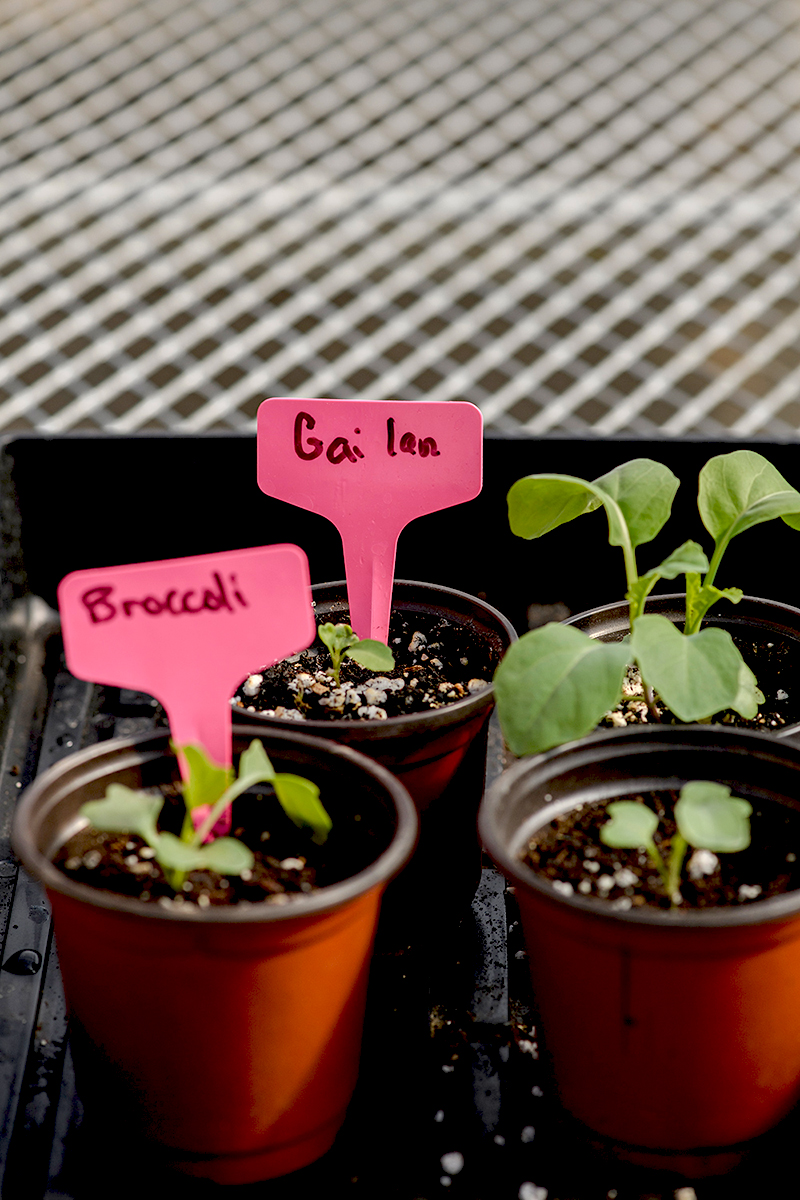
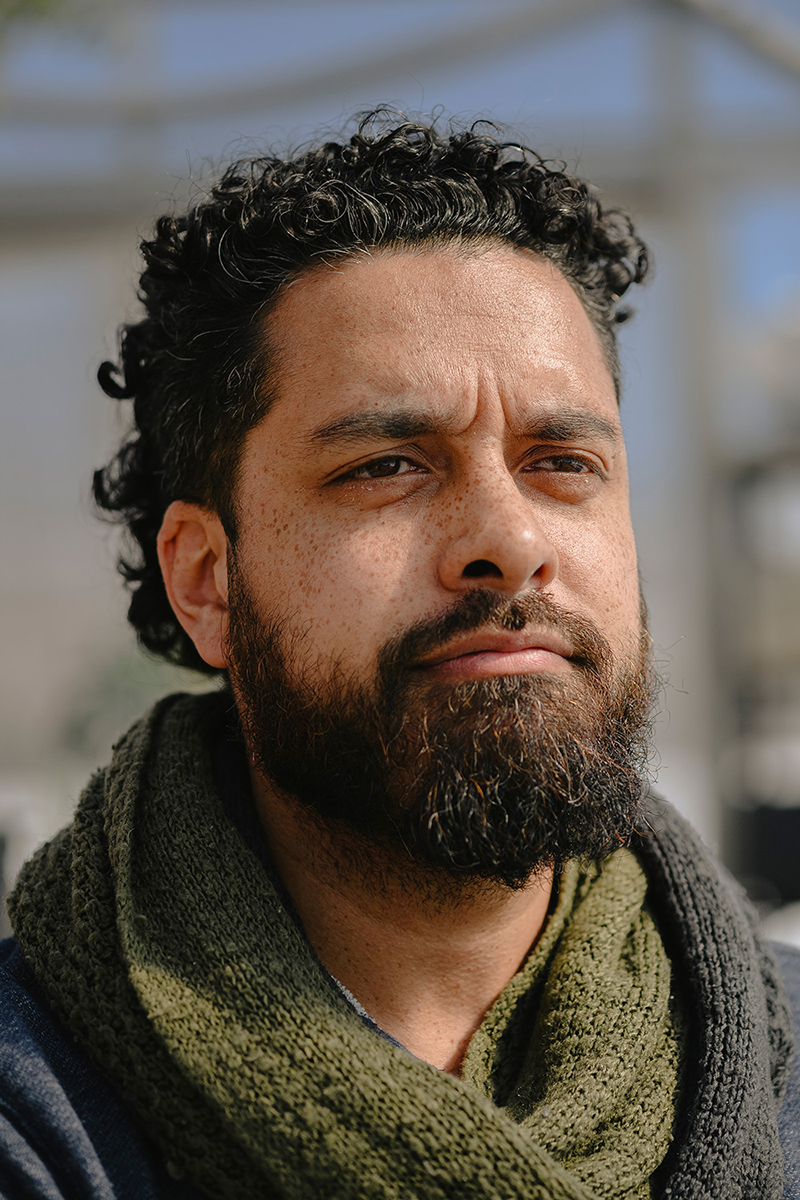
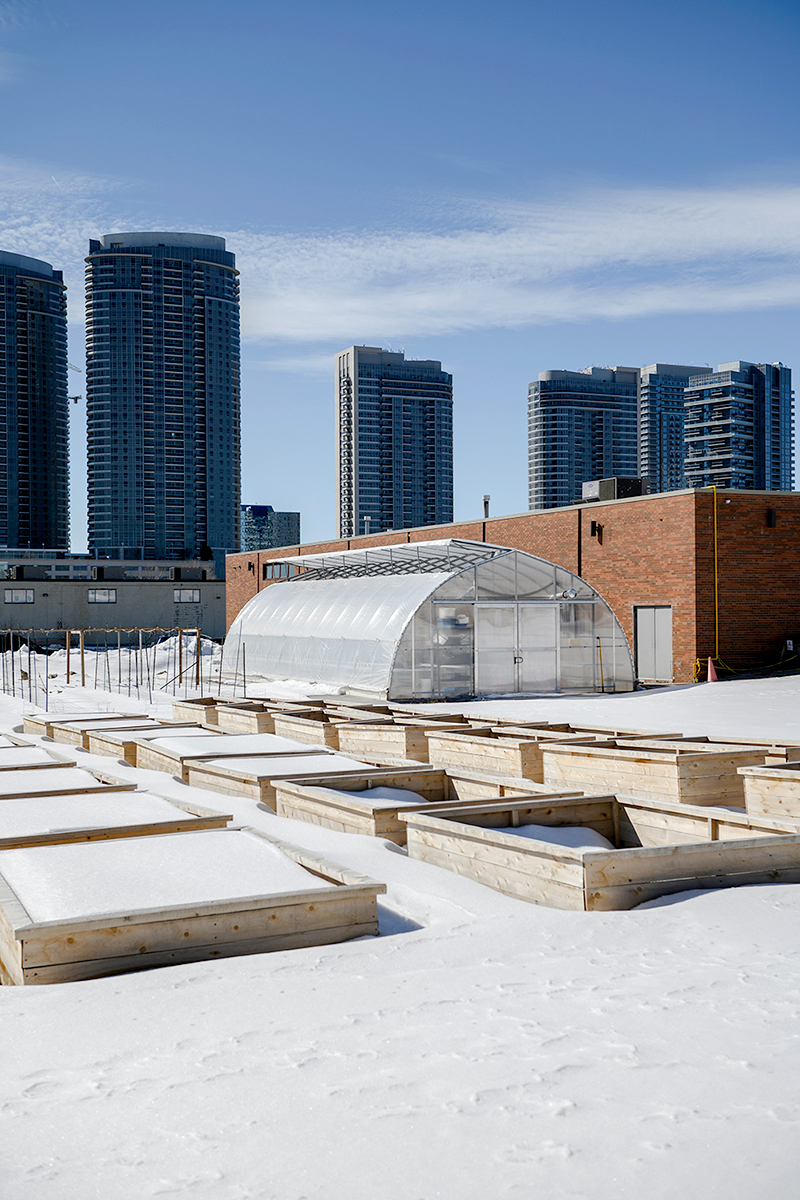
Seeds for change on campus
Food insecurity among Canadian post-secondary students is alarmingly high. A 2021 survey found 57 per cent of respondents at 13 institutions faced some level of food insecurity, so it’s no surprise that students are deeply invested in the issue. “They’re doing all kinds of work to create more socially just and ecologically rational food systems,” says Michael Classens, a collaborator at Feeding City and assistant professor at U of T’s School of the Environment. “We’re learning from them and discovering ways to support their efforts, such as linking them to similar student initiatives or sharing our knowledge of food production and procurement.” (U of T’s student unions operate food banks at each campus, and students experiencing food insecurity are encouraged to contact their registrar’s office to find out how the university can help.)
The number of growing spaces on North American campuses is rising, producing both food and learning opportunities. The crops often go to campus food banks or food operations, and students can gain volunteer or research experience working in the gardens. “We’re also seeing more institutions integrate food systems education into course curricula, allowing students to explore concepts such as food justice,” says Classens, who is developing a new course called “The Edible Campus.” Students in one of his existing courses recently worked on a project with The Stop food centre to incorporate food production in a pre- and post-natal nutrition program. “Seeing what students are doing on and off campus to contribute to better food systems gives me a lot of hope.”
Talking about food insecurity
“There’s a critical mass of people who are passionately involved in, and informed about, issues of food insecurity, but they’re often separated by geography, resources and language,” says Sharma. “Our lab is a central point for sharing knowledge, especially with individuals and groups who don’t have the capacity to do it themselves.” Feeding City hosts regular roundtable discussions and webinars and recently constructed an online library containing all the lab’s research – along with practical knowledge from food organizations. “We’re making it easy for our community partners, especially those in the Global South, to compare and apply effective solutions,” she says.
A podcast series, available this spring, will feature people working on the food frontlines. “Hearing from them in their own words is so important,” says Jaclyn Rohel, a postdoctoral fellow at U of T’s Jackman Humanities Institute and head of the Feeding City podcast team. “It’s a powerful way to create connections and share knowledge.” The first few episodes will showcase conversations with local food advocates, but later episodes will have interviews with people across the Feeding City global network. To help researchers and community organizations develop their own podcasts, Rohel and her team are building a podcasting toolkit that will be offered in multiple languages.
Suman Roy is known for his energy and commitment to the vision of a hunger-free Scarborough. But these days he’s feeling a bit daunted. His food banks are serving 7,000 people every week, more than double the number at the beginning of 2022. “I’m pessimistic about 2023, but I’m still optimistic about long-term change,” he says, pointing to several new collaborations with the Feeding City Lab underway. Roy is particularly excited about a grant application for a program that will offer training and subsidized retail space to first-time food entrepreneurs from immigrant and racialized communities.
Sharma puts it this way: “We have to work in the short term while always keeping the long-term goals in mind. It can be very depressing. We can feel defeated and do nothing. Or we can do small things that make a difference, knowing that there are many other people doing the same, and it all adds up.”


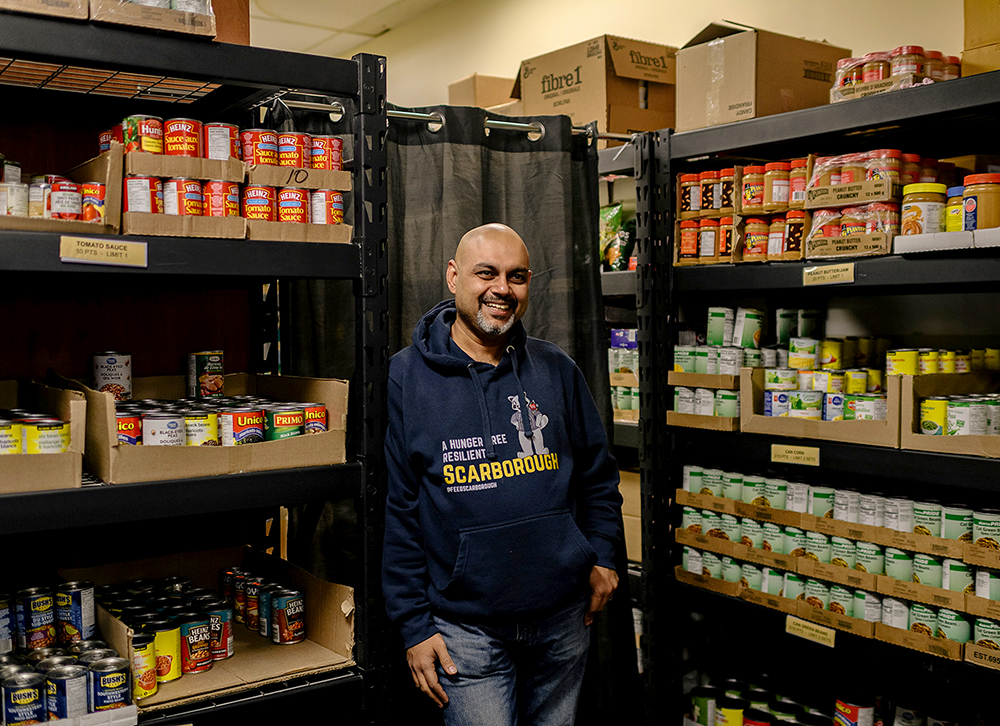

2 Responses to “ Hunger Pains ”
I am so impressed by the work that’s being done regarding food insecurity and by the vision shown by caring, well educated, hard working visionaries, entrepreneurs and social activists.
Jo-Ann Mandát (BA 1982 UTSC, MEd 1992 OISE) writes:
The alarming thing is both the Scarborough Food Security Initiative farm and the warehouse, located in Scarborough Junction, are situated on land that is part of a huge redevelopment master plan. Both are scheduled to be replaced by condos. The area is also losing its one and only grocery store to another condo development.
I look forward to a follow-up piece on food insecurity in Scarborough after all of this happens. The hunger pains can only get worse.